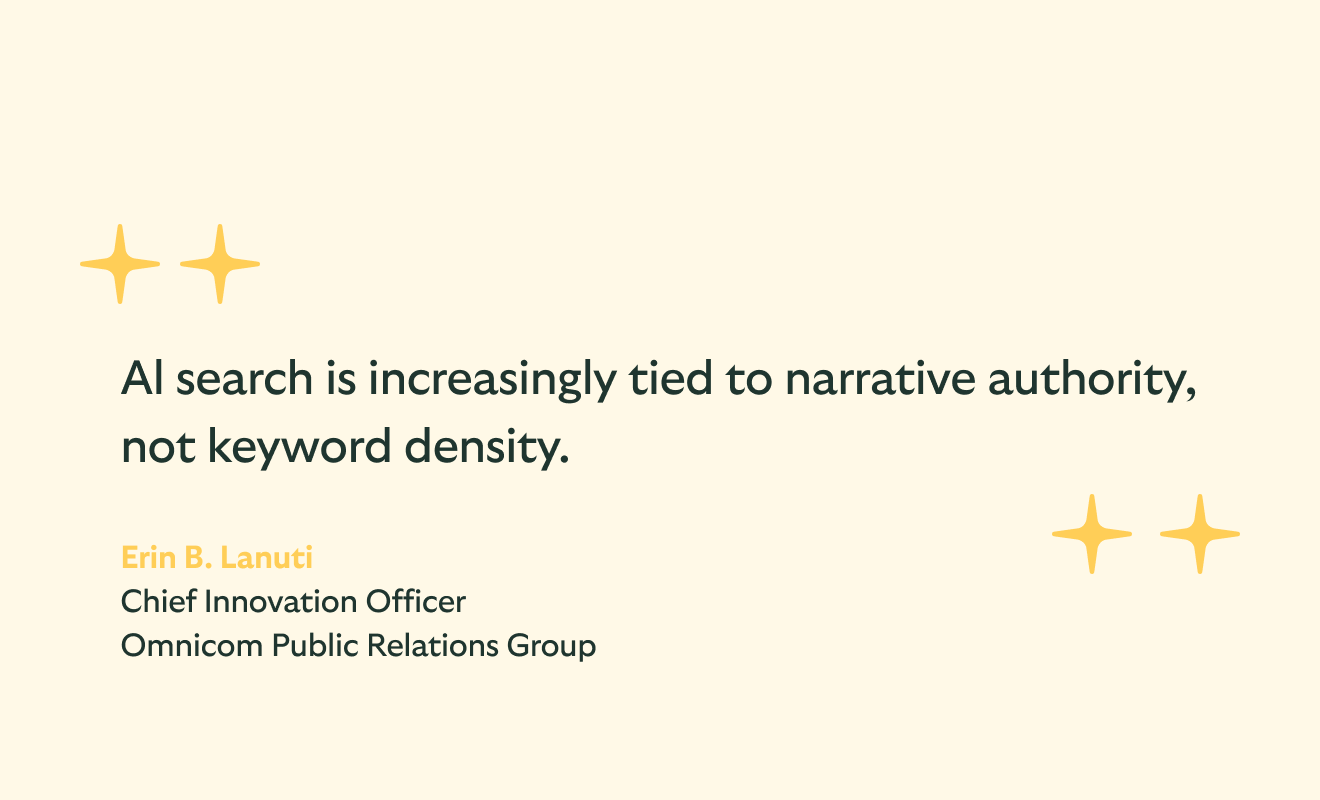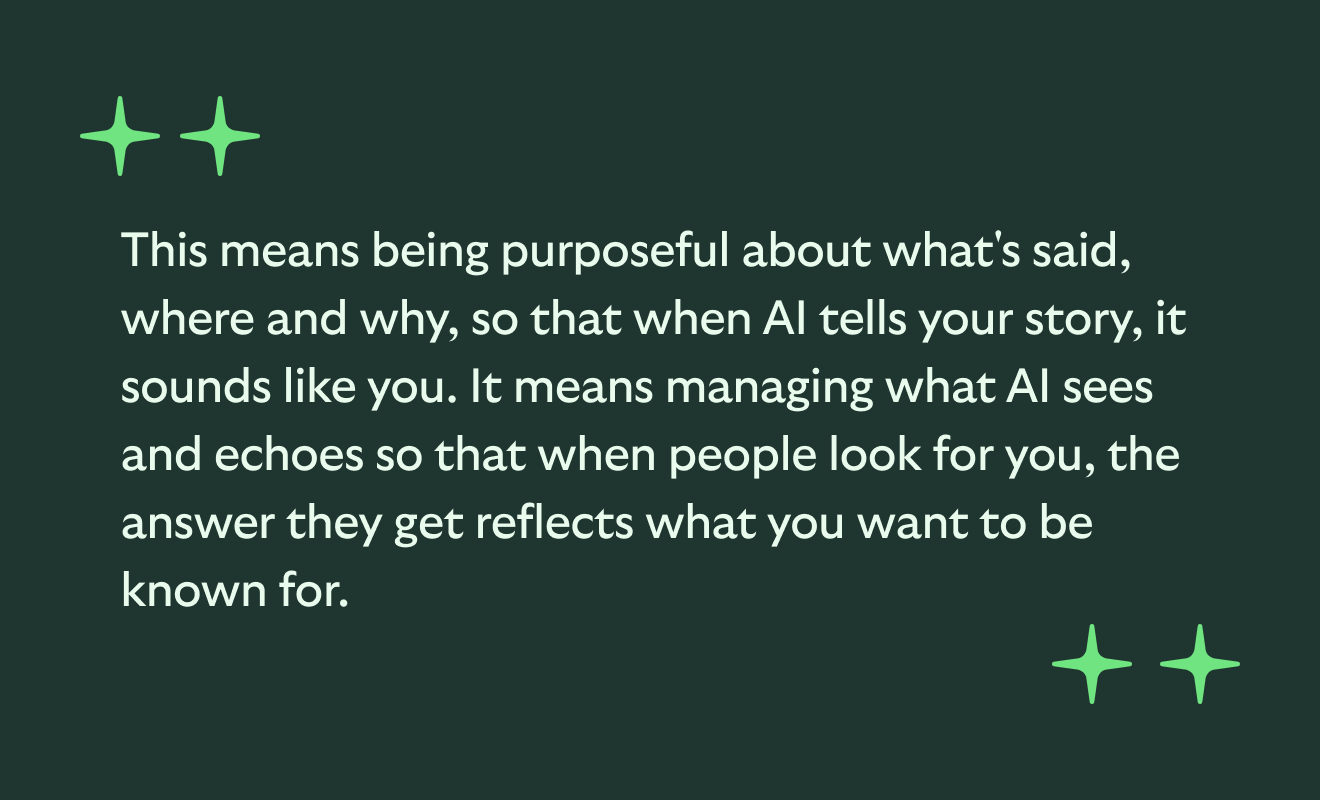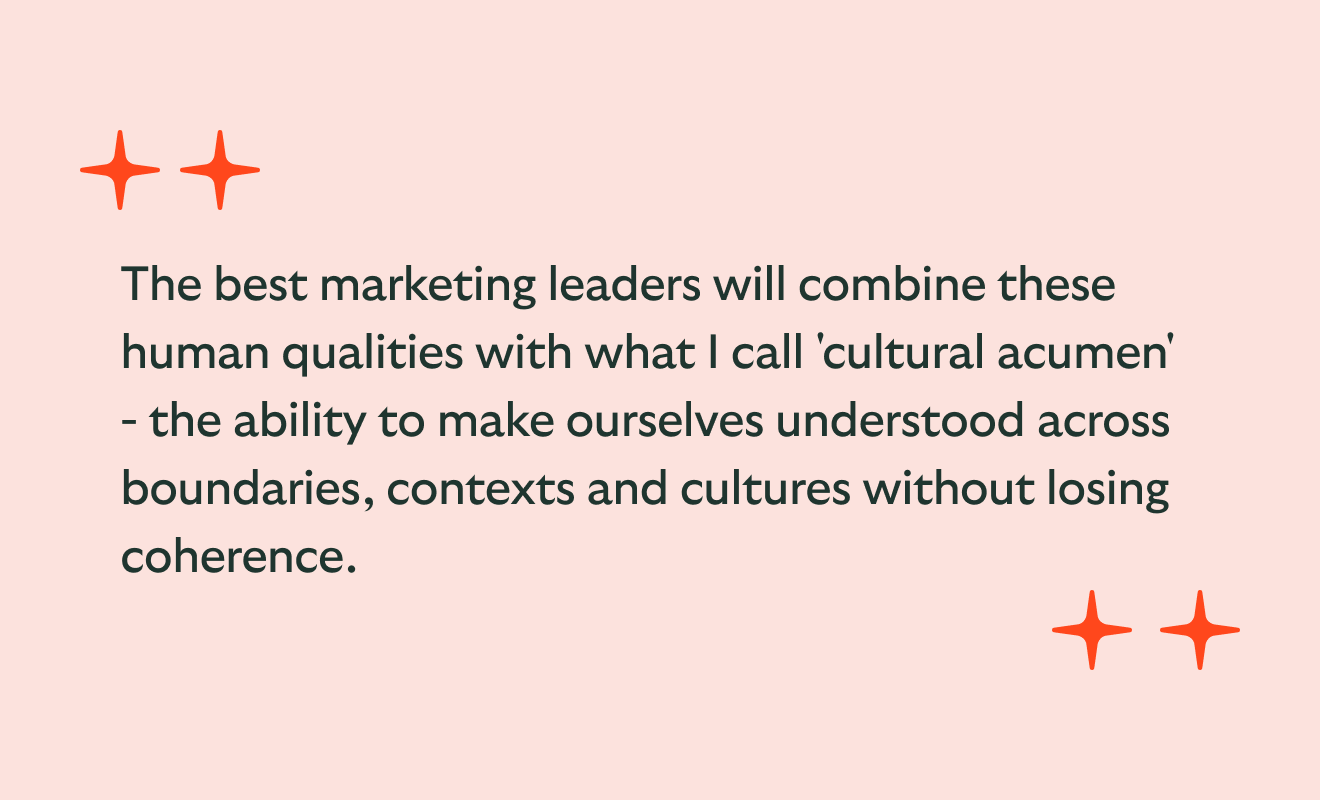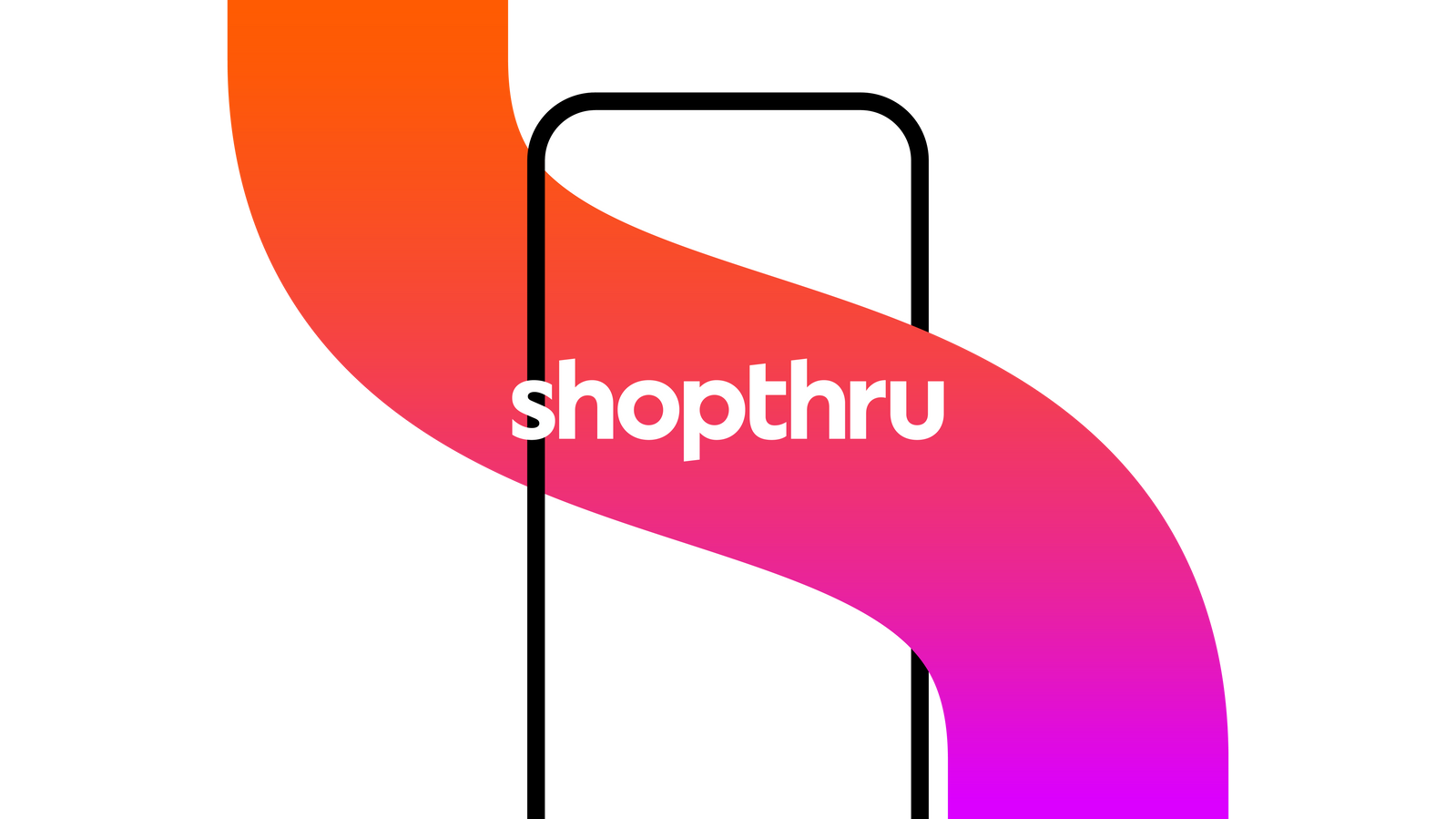AI: The Marketing Influencer You Need to Know
Insights

Share
By Sheelpa Patel, CEO & Founder Mavens + Mavericks
For marketers and the businesses we serve, the latest story with AI isn’t efficiency or speed. It’s influence.
Crafting Solutions from Data and Experience
Differentiation is what marketing is about and what investors seek in startups. For a product to stand out, marketers have to craft a compelling narrative that makes clear why it’s the best ‘solution.’
Data on its own isn’t enough to shape that narrative though. Great marketing still relies on creativity, knowledge and lived experience. And while AI is no substitute for in-the-trenches experience, it has an astonishing ability to source and crunch data.
The notion that it might replace humans altogether is reductive, however. Used wisely, AI augments human intelligence by doing away with friction and freeing us to focus on strategy, thinking and vision. In other words, the things humans excel at.
Expanding Human Capability
I saw this during my time as CMO of Oxa, an Oxford University spinout that is bringing autonomous driving technology to industrial environments, and where we often talked about how AI is reshaping humans’ role, not making us obsolete.
Autonomous vehicles, for example, free humans from routine driving tasks, allowing logistics managers to focus on route optimisation, say, or technicians to prepare for repairs while vehicles are in the field. Machines perform repetitive tasks; humans focus on higher-order thinking.
In my work with King's E-Lab in Cambridge, I see incredible early-stage entrepreneurs apply the same principle, using AI to tackle pressing problems in areas such as clean energy. Their excitement is a powerful reminder to focus on what AI can make possible, rather than just the risks it might bring.
Search: Where LLMs’ Real Power Lies
But AI’s power goes much deeper than efficiency and speed. Gartner’s 2024 forecast of a 25% drop in search traffic by 2026 is already beginning to materialise, if not worse than predicted, with visits to U.S. news sites plunging by 40%.
This decline is happening as people switch from traditional keyword-search to AI search and tools powered by LLMs (Large Language Models).
To paraphrase a certain film title, LLMs are everywhere, all at once, and hallucinations aside, can do astonishing things. As Gartner’s figures show, they’ve already changed search from being about ‘finding links’ to ‘getting answers’. LLMs generate those answers by combining data they’re trained on with, in some cases, real-time information they find online - a mix of owned (website, social, press) and third-party sources. The particular mix they use determines not just what people find about your company, but what they understand about it.
For companies, this brings clear risks. As Erin B. Lanuti Chief Innovation Officer at Omnicom, says in this piece: “As AI search becomes more mainstream, users will likely accept AI-generated answers at face value. This compounds the reputational risk and introduces the possibility of product misuse based on incorrect information.”
But as Erin also explains, LLMs are adapting, “prioritizing third-party, highly trusted and contextualized content over keyword-stuffed pages. . . They are also crafting deals with premium publishers to ensure access to high-quality journalism.

Narrative Authority: Your New Competitive Edge
LLMs’ influence on narrative authority makes them key intermediaries between brands and their audiences. What does this mean for marketing?
If your voice is weak, inconsistent or generic, you risk being misrepresented, reduced to white noise, or not showing up at all. This puts more than sales at risk. Confusing, outdated or plain wrong answers could jeopardise opportunities for building trust too.
Personally, I believe the best way to combat this is to prioritise the human touch. Without it, you sound the same as everyone else. Recruiters are already seeing this with cookie-cutter CVs that are flooding the market and making hiring more, not less, difficult. The more people use AI, the greater the problem becomes as everything sounds the same and AI trawls that ‘samey’ content to generate answers.
The irony, then, is that humans’ creativity and ingenuity will become more valuable, not less. Think of it another way; as the bar for generically available marketing messaging goes up, the bar for unique content will likely rise disproportionally higher.
For marketers, the big question is how to help companies build the narrative authority they want?
Control the Narrative, Manage Presence
As Erin argues, companies must now “actively understand and manage their AI presence.”

Right now, controlling the narrative starts with better content governance, with marketers regularly auditing, monitoring, managing and updating a company’s digital footprint. In time, a well-curated AI footprint will, I believe, become as important for marketing as a carbon footprint is for ESG.
As architects of the stories that shape that footprint, marketers will continue to be key players. Uniquely equipped to balance storytelling with brand positioning, we can ensure that certain companies get heard when everyone else is talking, not just once but consistently.
Humans First
Sure, we will use AI tools as part of this process, especially where they outperform humans. But I believe marketers will still need to be humans first, with all the lived experience, discernment, creativity, wisdom, imagination and flair that every good curator brings to the table. The more developed these qualities, the more meaningful and persuasive a company’s messaging will be.
Cultural Nous and AI Literacy

As someone who has five languages and worked in seven countries, I welcome AI as one more culture to understand, with its own customs and rules of engagement.
To some, this culture might feel a bit alien, even threatening. But I believe you just need to get to know it better.
To see the transformation we’re living through as an opportunity.
To see AI as the engine, highly proficient at the heavy lifting.
To see human intelligence as the fuel. The ‘extra’ that makes a brand stand out: purpose, direction, heart and conviction.
And finally, to see the vehicle as the marketing itself. The campaign, message or brand you're moving towards a particular audience or goal.
To move forwards, you need all three. Otherwise everything stalls.
Who wants to be left behind?




